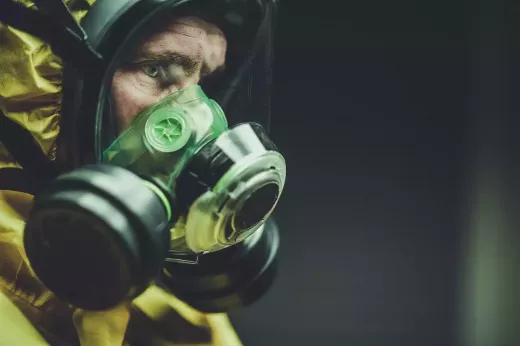Understanding Depression
Depression is a mood disorder that affects a person's emotions, thoughts, and behavior. It is characterized by feelings of sadness, hopelessness, and a loss of interest in activities that the person once enjoyed. Depression can be caused by a variety of factors, including genetics, life events, and brain chemistry. It is important to understand that depression is not a sign of weakness or a personal failing, and that it is a treatable condition.
There are different types of depression, including major depression, persistent depressive disorder, and seasonal affective disorder. Major depression is the most common type, and it is characterized by feelings of sadness, loss of interest in activities, and changes in appetite and sleep patterns. Persistent depressive disorder, also known as dysthymia, is a milder form of depression that lasts for at least two years. Seasonal affective disorder is a type of depression that occurs during the winter months, when there is less sunlight.
Signs and Symptoms of Depression
Depression can manifest in different ways, and the symptoms can vary from person to person. Some common signs of depression include:
- Feelings of sadness, hopelessness, or emptiness
- Loss of interest in activities that the person once enjoyed
- Changes in appetite and sleep patterns
- Fatigue and lack of energy
- Difficulty concentrating or making decisions
- Physical symptoms, such as headaches or digestive problems
- Thoughts of self-harm or suicide
It is important to note that not everyone with depression will experience all of these symptoms, and that the severity of the symptoms can vary. If you or a loved one is experiencing any of these symptoms, it may be a sign of depression.
Causes of Depression
Depression can be caused by a variety of factors, including genetics, life events, and brain chemistry. Research suggests that depression may be caused by an imbalance of chemicals in the brain, such as serotonin and dopamine. Life events, such as the loss of a loved one, a relationship breakup, or financial difficulties, can also trigger depression. Additionally, certain medical conditions, such as thyroid disorders or chronic pain, can increase the risk of developing depression.
It is important to understand that depression is not a personal failing, and that it is not caused by weakness or a lack of willpower. Depression is a treatable condition, and seeking help is a sign of strength.
Who is at Risk for Depression?
Depression can affect anyone, regardless of age, gender, or background. However, there are certain factors that can increase the risk of developing depression. These include:
- Family history of depression
- Personal history of mental health conditions
- Substance abuse - Chronic medical conditions
- Stressful life events - Lack of social support
If you or a loved one is at risk for depression, it is important to be aware of the signs and symptoms, and to seek help if needed.
How to Help a Loved One with Depression
If you suspect that a loved one may be experiencing depression, it is important to approach the situation with empathy and compassion. Here are some practical tips for how to help:
- Encourage your loved one to talk about their feelings, and listen without judgment.
- Offer support and reassurance, and let them know that they are not alone.
- Help them to access resources, such as therapy or support groups.
- Offer to accompany them to appointments or meetings.
- Encourage healthy habits, such as exercise, healthy eating, and getting enough sleep.
- Avoid making assumptions or offering unsolicited advice.
It is important to remember that supporting a loved one with depression can be challenging, and it is okay to seek support for yourself as well.
How to Help Yourself with Depression
If you are experiencing depression, there are steps that you can take to help yourself. Here are some practical tips:
- Reach out to a trusted friend or family member, and talk about your feelings.
- Practice self-care, such as exercise, healthy eating, and getting enough sleep.
- Engage in activities that you enjoy, even if you don't feel like it.
- Seek professional help, such as therapy or medication.
- Avoid self-medicating with alcohol or drugs.
- Be patient with yourself, and remember that recovery takes time.
It is important to remember that seeking help for depression is a sign of strength, and that there is no shame in asking for support.
When to Seek Professional Help
If you or a loved one is experiencing symptoms of depression, it is important to seek professional help. There are a variety of treatment options available, including therapy, medication, and alternative therapies. If you or a loved one is experiencing thoughts of self-harm or suicide, it is important to seek help immediately.
Treatments for Depression
There are a variety of treatments available for depression, including therapy, medication, and alternative therapies. Cognitive-behavioral therapy (CBT) is a common type of therapy that can be effective for treating depression. Antidepressant medication can also be effective, but it is important to work with a healthcare provider to find the right medication and dosage. Alternative therapies, such as acupuncture or meditation, may also be helpful for some people.
It is important to remember that there is no one-size-fits-all approach to treating depression, and that finding the right treatment may take time.
Coping Mechanisms for Depression
In addition to seeking professional help, there are coping mechanisms that can be helpful for managing depression. These include:
- Engaging in activities that you enjoy
- Practicing relaxation techniques, such as meditation or deep breathing
- Setting realistic goals
- Avoiding negative self-talk
- Seeking support from friends and family
- Practicing self-care, such as exercise, healthy eating, and getting enough sleep
It is important to remember that coping with depression can be challenging, and it is okay to seek support from a healthcare provider or therapist.










